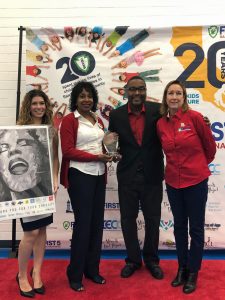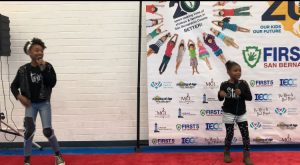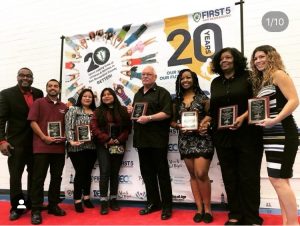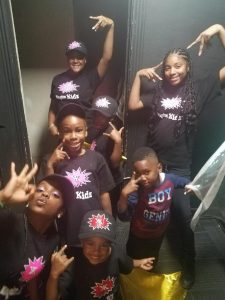(EMPIRE NEWS NETWORK (ENN)—-SAN BERNARDINIO, CA— Provisional Accelerated Learning Center hosted their 4th Annual Pals of PAL Community Feast. The local community was invited to participate in an event that was established out of a desire to meet community needs.
The Pals of PAL Community Feast has attracted many families, friends, and individuals from all backgrounds throughout the community. Each year this event aims to provide hope and joy for those who may have fallen on hard times.
PAL Center, an established non-profit organization for over thirty-two years was founded by Dr. Mildred Henry who saw a need to provide students and the community with a quality education. Birthed from her legacy, the PAL Charter Academy was established over 20 year ago and was designed to provide “Education with an Individualized Approach.” Her successor Dwaine Radden Sr., Chief Executive Officer (CEO) of the PAL Center & Charter Academy saw a need to provide a “Feast” style luncheon for the Community and students for the Thanksgiving Holiday. PAL as also has hosted community gatherings, and food drives to support the needs of the community.
Radden said, “This event and other PAL outreach program has filled a huge void in the community. We believe in taking a holistic approach when it comes to addressing community and PAL students’ needs. There’s nothing greater than breaking bread and fellowshipping with the community, staff and students. We have been blessed with an incredible Board, Staff and Student Body here at the PAL Center and PAL Academy. They love giving back to the community!
Mr. Brantley is one heck of a cook. He is the true catalyst behind our Community Feast and I salute him for his efforts and generosity.”
Students, teachers, and administrators shared good food, laughter, and music with their community and helped those in need. A display board at the entrance of the PAL Community Center was covered with statements from students that read what they themselves were thankful for, providing inspiration to those who attended the luncheon. A PAL Middle School student wrote,
“I’m thankful for my mom because she works hard to provide for me”. “I’m thankful for the food that is placed on the table”, another student writes.
About 80 people from the community were served a spread of delicious foods. Students who volunteered served their community members while doing so with thanksgiving in their hearts. Smiles filled the room as the families ate and laughed as they shared stories with one another.
Director of Special Projects, Nicole Mitchell, said “If we aren’t here to serve then why are we here? We are meant to serve and help meet the needs of others. I’m thankful to see the smiles on the faces of our community here on our campus. I hope our acts of kindness will create a ripple effect in our community. I believe our actions are seeds planted that can grow and change hearts around our community for the better!”
Every Tuesday at 2 PM the PAL Center offers a Community Food Bank Program, which serves approximately 100+ community members. All students, staff, and parents are invited to be of service.
PAL is currently operating at two High School and Middle School locations in San Bernardino, a local Resource Center, as well as an online PAL Adult High School (PALAHS) diploma program. PAL is now enrolling for the 2018 – 2019 school year. For more information about any of the PAL campuses or services, please visit the website at www.palcenter.org or contact the main office at 909-887-7002. www.palcenter.org
 Westside Story Newspaper – Online The News of The Empire – Sharing the Quest for Excellence
Westside Story Newspaper – Online The News of The Empire – Sharing the Quest for Excellence














